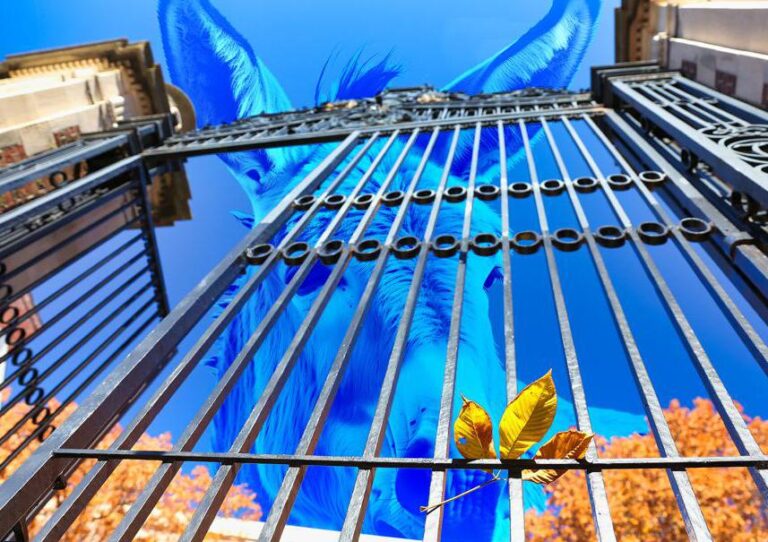If Harvard no longer gets federal funding, can it bring back affirmative action?
Resurrecting racial preferences in Harvard admissions would doubtlessly be more complicated legally than just flipping a switch. But it speaks to a bigger question arising from the Trump administration’s vow to defund Harvard: If losing federal money means Harvard is no longer fettered by the obligations that come with it, will the university create an institution more in line with its prevailing progressive proclivities?
Will it double down on diversity, equity, and inclusion efforts? Will it simply outright deny conservatives tenure? Will pro-Palestinian voices rule campus narratives yet again? Will institutional neutrality go out the window and diversity statements on applications come back in?
Will it become the progressive version of Hillsdale College — a conservative hub that isn’t bashful about its entirely private funding status?
All of that might seem premature, since we don’t at this point know exactly what funds Harvard has lost or how deep the cuts go. But the more funds the Trump administration strips from Harvard, the more pressure points it removes. Indeed, the university paradoxically may feel less pressure to reform, since the government has already used up its main point of leverage. And it could even feel free to turn back the clock on changes most conservatives have celebrated.
That would be an unfortunate outcome, because Harvard has already made progress toward a better culture for free discourse under the intense public scrutiny of the past two years.
Which is probably why so many of the fiercest advocates for open dialogue on campus and academic freedom have objected to the Trump administration’s demands — even though they might very well agree with some of them. The administration’s actions undermine academic freedom — as imperfect as it might be today — and let the progressives who’ve done so much to weaken academic freedom at Harvard and other campuses seize the mantle of its champions.
As academic freedom advocates from across the Ivies wrote in an op-ed in the Globe recently: “Universities are now confronted with extraordinary intrusions into their affairs by the federal government. At the same time, many threats to academic freedom emanate from within universities themselves.’’
And while they call on their respective universities to “challenge the dangerous threats to their independence,’’ they also ask that their own institutions “protect the free speech rights of faculty and students, consistently and without regard to viewpoint’’ and “ensure that members of the community treat one another with civility, humility, charity, and curiosity.’’
In addition to the possibility that the cuts could backfire, the Trump administration should consider what could be lost, not just in Boston but also across the country. The vast majority of federal funding goes to medical and scientific research — not to the social justice warriors flitting about the humanities departments. If the Trump administration wants Harvard to shrink into a progressive Hillsdale, that’s fine — many of the most intelligent people I know went to Hillsdale. But the college isn’t known for its cancer doctors, because Hillsdale isn’t a major research institution.
And will getting rid of funding that goes to cancer research do much for antisemitism on campus? I’m skeptical. Again, if it no longer has to worry about losing federal funding, what’s stopping Harvard from bringing back the faculty leaders of the Center for Middle Eastern Studies it recently dismissed after the program faced antisemitism allegations? What happens when progressive donors, tickled by Harvard’s act of resistance, start pouring money into their own pet projects?
Still, conservatives might wonder, why doesn’t Harvard just cave like Columbia and save its federal money while accepting changes that, in many cases, could help address its ideological bent? Well, another panoply of inadvertent possibilities awaits. If a progressive is elected to the White House, what’s to stop them from threatening federal funding based on their own progressive definition of discrimination or viewpoint diversity?
Some blue states have mandated that colleges provide abortion pills; would a progressive president say that a lack of on-campus abortions amounted to a violation of women’s rights? Would they, like the Obama administration, go after the due process of college students accused of sexual assault?
Trump’s threats come from valid frustrations with academia — many of which I share. But as a conservative — even one who was recently a frustrated Harvard student — I can’t cheer on what is clearly the kind of drastic institutional change that conservatives from Edmund Burke to Michael Oakeshott have warned against. The kind that, no matter how well-intentioned, comes with unintended consequences.
That’s why conservatives are partial to markets. Markets in the economic sense but also in the political and ideological sense. Donors, dismayed by encampments and pro-Hamas rhetoric, wreaked havoc on Harvard’s bottom line by withdrawing donations. Free speech watchdogs like the Foundation for Individual Rights and Expression have held American universities to account by calling out attacks on free speech. Students dismayed with the political culture at progressive schools like Harvard have been looking at competing universities down south. And media scrutiny has been unrelenting.
And it’s working, even if slowly, to bring more balance back to campus. The Salient, Harvard’s conservative paper, is back after being defunct while I was a student. The university adopted institutional neutrality and eliminated diversity statements for hiring in the largest faculty division.
But that could all go away, too, especially since left-wing critics of those changes can now accurately say they didn’t prevent Harvard from being punished. The Trump administration has opened a Pandora’s box, and it’s hard to predict what comes next.
Carine Hajjar is a Globe Opinion writer. She can be reached at carine.hajjar@globe.com.
